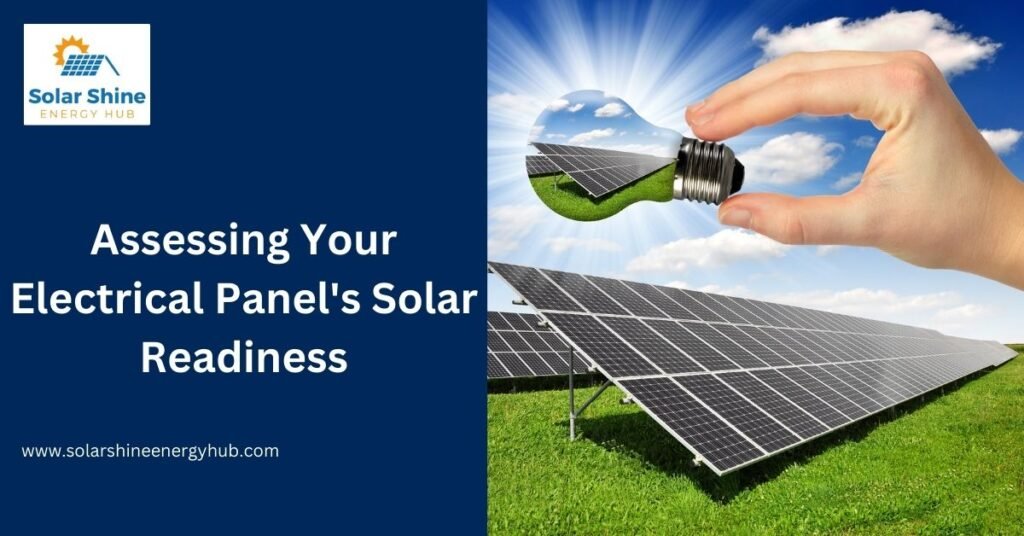Do I need to upgrade electrical panel for solar? As our world continues to grapple with the consequences of climate change, the adoption of renewable energy sources like solar panels is increasingly becoming a necessity rather than a choice. However, the transition to solar power comes with its own set of questions and considerations, one of which is the need for an electrical panel upgrade.
Directly addressing the question at hand – “Do I need to upgrade my electrical panel for solar?” – the answer is a conditional yes. It primarily depends on your panel’s current capacity and your future power needs with the installation of a solar system. The specifics can vary based on individual circumstances, and we’ll explore this in the following sections.
Understanding the correlation between solar panels and electrical systems can be quite complex, especially for those new to the solar industry. This blog post aims to shed light on this often-overlooked aspect of solar installation, providing valuable insights to help you make an informed decision. Stay tuned as we unravel the intricacies of this subject.
Assessing Your Electrical Panel’s Solar Readiness

Step-by-Step Guide for Assessing Your Panel’s Solar Readiness
- Assess your current electrical panel: Check the age and capacity of your existing panel. Older panels (more than 25 years old) or those with a low capacity (100 amps or less) may not be able to handle the additional load from solar panels.
- Review your home’s energy consumption: Analyze your power bills over the past year to determine your average energy usage. This will give you an estimate of how many solar panels you might need and whether your current electrical panel can handle this.
- Consult with a solar installation professional: They can conduct a thorough assessment of your electrical system and provide expert advice on the feasibility of solar installation with your current setup.
- Check local building codes and regulations: Some areas may require a certain standard or capacity for electrical panels when installing solar panels.
- Evaluate future power needs: If you plan to increase your home’s electricity consumption in the future (e.g., installing an electric vehicle charging port), consider this in your assessment.
Remember, while these steps can give you a general idea, it is always best to consult with a professional when making decisions about solar panel installation and electrical panel upgrades.
Are Solar Panels Overloading Your System?

The addition of solar panels to your electrical system could lead to overloading if not properly managed. It’s crucial to recognize the signs of an overloaded system and understand the potential consequences. Here’s a table that highlights these issues:
| Signs of an Overloaded System | Potential Consequences |
| — | — |
| 1. Frequent tripping of circuit breakers or blown fuses. | Circuit breakers are designed to protect your home from an electrical fire. Frequent tripping could indicate an overloaded system. |
| 2. Dimming or flickering lights, particularly when other appliances are in use. | This may signal that your system is struggling to supply the necessary power, potentially leading to damage or degradation of your appliances and lights. |
| 3. Overheated electrical panels, outlets, or switches. | Overheating is a big red flag as it can be a precursor to electrical fires. |
| 4. Regular need for extension cords or additional outlets. | This could indicate that your system’s capacity is insufficient for your home’s power needs. Overuse of extension cords can lead to overheating and fire hazards. |
| 5. A burning smell or unusual noises from your electrical panel. | Both are serious signs of an overloaded system and should be addressed immediately to prevent potential fires. |
Should you notice any of these signs, it is strongly recommended to consult with a professional electrician or a solar panel installation expert. Overloading can potentially lead to serious consequences, including irreversible damage to your electrical appliances, degradation of your home’s electrical system, and in severe cases, even electrical fires.
Solar Installation: Is It Time for an Upgrade?

If you’re mulling over the question of upgrading your electrical panel to accommodate your new solar panels, you’re not alone. Many homeowners share similar apprehensions, wondering about the costs, the process, and the necessity of this upgrade. Let’s address some of these concerns:
- Cost: Upgrading your electrical panel can indeed be a significant expense. However, it is essential to view this as an investment towards the safety of your home and the efficiency of your solar panels. Overloading and the resultant damages can lead to more costly repairs down the line.
- Process: Upgrading an electrical panel may seem like a daunting task, but remember that you don’t have to go it alone. Professional electricians can handle the job with efficiency and precision, ensuring minimal disruption to your daily routine.
- Necessity: Whether an upgrade is necessary largely depends on your current panel’s capacity and your solar power needs. If your system is already nearing its limit, adding solar panels without an upgrade could lead to overloading and other electrical issues.
Always remember, the goal of an upgrade is not merely to support your shift to solar power, but to ensure the overall safety and efficiency of your home’s electrical system. Consulting with a professional will help you make an informed decision that suits your specific needs.
Navigating Panel Upgrades for Solar Integration

Electrical panel upgrades for solar integration are a crucial aspect of a successful transition to solar power. Properly navigating this process can amplify the efficiency and safety of your system.
The journey starts with understanding your system’s current capacity, recognizing potential overload signs, and estimating your future power needs. This step is essential in ensuring your system is prepared to accommodate the additional load from the solar panels.
Professional assistance is invaluable in this process, offering expert advice and meticulous handling of the upgrade. With careful planning and execution, your journey toward a greener, more sustainable energy source can be smooth and hassle-free.
Solar Transition: Do You Need an Upgrade?

- Evaluation: Transitioning to solar power necessitates a thorough analysis of your existing electrical system to determine if an upgrade is required.
- Safety Measures: Ensuring your system can handle the new load prevents overload, safeguarding against potential electrical hazards.
- Future-Proofing: Consider any future power needs to avoid frequent upgrades; planning for tomorrow is as important as addressing today’s challenges.
- Professional Consultation: Engaging professionals in the upgrade process guarantees precise and efficient work, minimizing disruption to your routine.
- Investment Perspective: Treat the cost of an upgrade as an investment in your home’s safety and the efficient operation of your solar panels.
Conclusion Do I need to upgrade electrical panel for solar?
In the era of sustainable living, transitioning to solar power is an empowering step towards a greener future. While it requires careful consideration and potentially an upgrade of your electrical panel, the benefits significantly outweigh the initial investment. Remember, the journey to solar is not a solitary one; professional electricians are there to ensure a smooth and safe transition. Embrace the power of the sun, future-proof your home, and join the revolution towards a sustainable world. Your journey to green energy begins now.